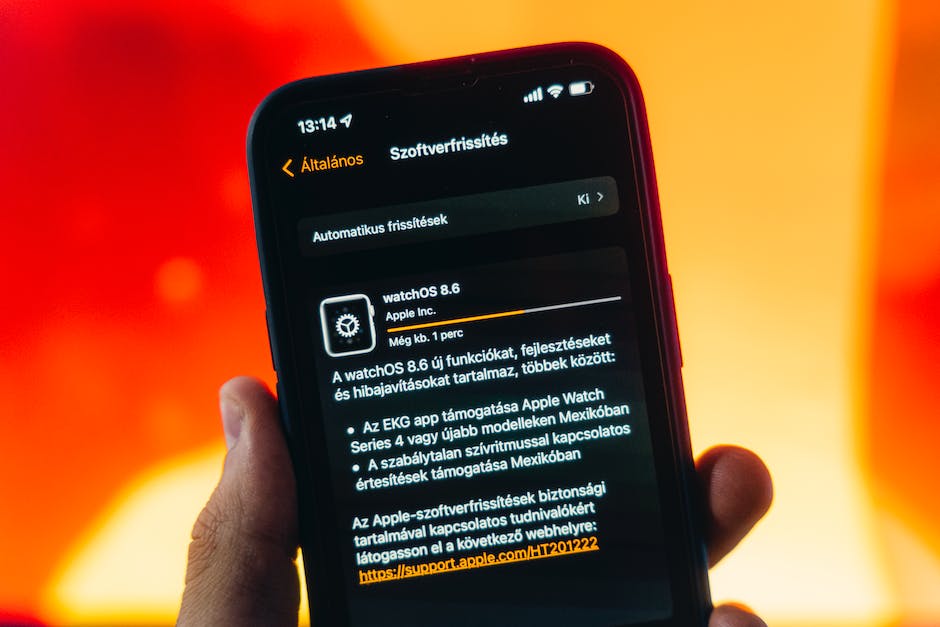Bespoke Iot Software
What is IoT software?
IoT software refers to software that is designed to work with connected devices, sensors or machines. This software is commonly used for monitoring, analysis and control of machines, processes, or systems. Its various uses include:Contact us if you are wanting to have a bespoke Iot application developed?
1. Remote monitoring and control: IoT software can be used to remotely monitor and control machines and processes. This can be particularly useful in industrial settings where machines and equipment are spread across a wide area and need constant monitoring.
2. Data collection and analysis: IoT software can collect data from various sensors and devices, and then analyze this data to provide insights into the performance of machines, processes or systems. This data can be used for predictive maintenance or to optimize performance.
3. Smart home automation: IoT software can be used for smart home automation, allowing users to control various devices and appliances remotely. This can include controlling lights, temperature, security systems, and entertainment systems.
4. Healthcare monitoring: IoT software can be used for monitoring the health of patients remotely. This can include tracking vital signs, medication adherence, and even the monitoring of chronic conditions.
5. Asset tracking: IoT software can be used for tracking the location and status of assets. This can be particularly useful in logistics and supply chain management, where it is important to know the location of products and materials at all times.
Overall, IoT software is a powerful tool that can be used to monitor, control and optimize a wide range of machines, processes, and systems. Its diverse uses make it an essential tool for businesses and individuals looking to enhance their efficiency and improve their operations.

What are the main functions of IoT software?
1. Data Ingestion module: This module is responsible for collecting data from sensors or devices, and aggregating or filtering it to remove any irrelevant data. It also performs data validation and normalization.2. Data Storage module: This module stores the data collected from the Data Ingestion module. It provides the flexibility to choose a database solution based on the specific requirements of the business owner, such as scalability, security, or cost-effectiveness.
3. Data Analytics module: This module performs analytics on the data collected from the Data Ingestion module, providing insights into trends or patterns, detecting anomalies, or predicting future events. This module can include machine learning algorithms to improve the accuracy and relevance of the insights.
4. Control module: This module provides the ability to interact with the devices or sensors based on the insights generated by the Data Analytics module. It can include features such as remote control, system alerts, or automated responses.
5. User Interface module: This module provides a user-friendly interface for the business owner to interact with the IoT software, such as dashboards, reports, or mobile applications. It should be easy to use and customize based on the specific needs of the user.
Overall, iot software provides valuable functionality such as real-time data monitoring, predictive maintenance, asset tracking, energy management, and many others. Its flexibility and scalability make it an essential tool for businesses to optimize their operations, reduce costs, and improve efficiency.
Data / systems integration
IoT software is typically integrated with a variety of systems, devices, and data sources to enable communication, data sharing, and automation. Some common examples of systems that IoT software may integrate with include cloud platforms, sensors and devices, databases, analytics tools, and various APIs and web services.To facilitate this integration, many IoT software platforms and tools are designed to support APIs and other integration technologies that allow for seamless data transfer and communication between different systems, devices, and data sources. These APIs and tools may use standard protocols and data formats, such as MQTT or JSON, to enable interoperability and ensure compatibility with other systems and devices.
When developing custom IoT software, there are several considerations to keep in mind when integrating with other systems or data sources. For example, security is a critical concern when integrating with cloud platforms or other external systems, and appropriate authentication and access controls must be put in place to ensure that data is transferred securely and only to authorized users.
There may also be performance and scalability considerations when integrating with large-scale data sources or processing large volumes of data in real-time. In these cases, it may be necessary to use specialized tools and technologies, such as message brokers or stream processing engines, to ensure that data is processed quickly and efficiently.
Finally, when integrating with external APIs or web services, it is important to carefully examine the terms of service and licensing agreements to ensure compliance and avoid any potential legal issues. In some cases, it may be necessary to negotiate custom terms or licensing agreements to ensure that the integration is legally and financially viable for both parties.
Overall, the integration of IoT software with other systems and data sources is a critical aspect of developing customized IoT solutions, and careful consideration must be given to security, performance, scalability, and legal and licensing considerations to ensure a successful and effective integration.
Who uses IoT software?
IoT software can be used by a wide range of organizations across different markets and verticals. Small, medium, and large organizations can benefit from using IoT software to improve efficiency, automate processes, and gain insights from data collected by IoT devices. Healthcare organizations can use IoT software to monitor patient health and streamline data collection, while manufacturing companies can use it to track inventory and optimize their supply chain. Retailers can use the technology to improve customer experiences by using sensors to track foot traffic and understand customer behavior patterns. Agriculture organizations can use IoT software to manage crops and livestock, monitor soil and weather conditions, and optimize irrigation. The possibilities are endless, and any organization looking to improve their operations and harness the power of connected devices can benefit from IoT software.
Benefits of IoT software
Organisations use IoT software for a range of reasons, but the key benefit is usually the ability to collect and analyse data from their assets in real-time. This can help them to make better decisions, improve efficiency, reduce costs, and create new revenue streams. IoT software can also help businesses to improve customer experience, by enabling them to offer personalised, context-aware services that are tailored to individual needs. Other benefits of IoT software include increased safety, reduced downtime, and better collaboration between employees. Overall, IoT software is a powerful tool that can help organisations of all sizes to gain a competitive edge in their respective markets.Some of the players in the IoT software market
Here are some of the main brands of iot software and their key benefits and shortcomings, along with customer feedback:1. AWS IoT: Key benefits include scalability, flexibility, and excellent integration with other AWS services. However, some customers have noted that the pricing model can be complex and difficult to understand.
2. Microsoft Azure IoT: Key benefits include a powerful analytics engine and a strong focus on security. However, some customers have found the platform to be somewhat difficult to use and navigate.
3. Google Cloud IoT: Key benefits include reliable connectivity and strong data security features. However, some customers have noted that the platform can be somewhat lacking in terms of customization options.
4. IBM Watson IoT: Key benefits include powerful analytics capabilities and a strong focus on machine learning. However, some customers have found the platform to be somewhat complex and difficult to learn.
5. Bosch IoT Suite: Key benefits include a modular architecture that allows for customization and flexibility. However, some customers have noted that the pricing can be somewhat high compared to other options.
Overall, it's important for business owners to carefully evaluate their specific needs and requirements when considering custom iot software development, and to consider a range of factors beyond just brand name and reputation. Custom iot software development can offer tremendous benefits in terms of automation, efficiency, and innovation, but it's important to choose a partner with the right combination of technical expertise, market knowledge, and customer service skills to ensure a successful outcome.
Benefits of off-the-shelf IoT software
Off-the-shelf IoT software has a number of benefits for businesses looking to implement IoT solutions. Firstly, it is typically more cost-effective than custom-built solutions, as it has a larger user base and can be developed more efficiently. This means that businesses can quickly and easily implement IoT solutions without investing significant time and resources into software development.Additionally, off-the-shelf IoT software is often more reliable and secure than custom solutions, as it has been thoroughly tested and vetted by numerous users. This is particularly important for businesses that are dealing with sensitive data or operations, as the use of untested or insecure software can lead to serious consequences.
Another benefit of off-the-shelf IoT software is that it often comes with a range of features and integrations that can be easily customized to meet the specific needs of a business. This means that businesses can leverage existing solutions to create bespoke IoT environments without having to build everything from scratch.
Overall, off-the-shelf IoT software can provide businesses with a range of benefits, including cost-effectiveness, reliability, security, and flexibility. By considering these benefits, businesses can make informed decisions about whether to choose off-the-shelf or custom-built IoT solutions for their operations.
Limitations of off-the-shelf IoT software
Off-the-shelf iot software may seem like a convenient option for businesses, especially for those who are looking for a quick solution. However, it comes with several limitations that may affect the overall efficiency and functionality of the software.Firstly, off-the-shelf iot software is not tailored to meet the specific needs of the business. It may have features that the business does not require or lack some that are essential. For instance, a business may require a iot software that collects data from a particular device, but the off-the-shelf software may not be compatible with such a device.
Secondly, off-the-shelf iot software is usually generic and designed to fit a wide range of businesses. Therefore, it may lack the necessary integrations that the business requires for the software to function effectively. This may require additional customization that may be costly and time-consuming.
Furthermore, off-the-shelf iot software may not be scalable to accommodate the business's growth. As the business expands, the software may become inadequate, leading to the need for another software solution, which may be costly and inconvenient.
In conclusion, off-the-shelf iot software may seem like an easy solution for businesses. Still, it comes with several limitations that may affect the overall efficiency and functionality of the software. It is important for businesses to consider custom iot software solutions to cater to their specific needs and requirements.
Is bespoke IoT software a viable option?
Bespoke or partially bespoke iot software offers several benefits to businesses, including greater flexibility and control over the technology they use. This type of software is designed specifically to meet the unique needs of a business, allowing it to function more efficiently and effectively.One successful use case for bespoke iot software is in the healthcare industry. Hospitals and clinics have used custom software to automate patient monitoring and data collection. This has resulted in improved patient outcomes and reduced costs. Similarly, manufacturers have used bespoke software to monitor and manage production processes, leading to increased productivity and profitability.
Another benefit of bespoke iot software is that it can be designed to integrate with existing systems and processes. This allows businesses to take advantage of the latest iot technologies without having to completely overhaul their existing infrastructure.
In addition, bespoke iot software can provide businesses with valuable data and insights that can be used to make informed decisions. For example, retailers can use data from iot devices to track customer behavior and make informed decisions about inventory management and marketing campaigns.
Overall, the benefits of bespoke iot software are numerous and can help businesses save time and money, improve their efficiency, and gain valuable insights into their operations. By partnering with a reputable software development company, businesses can ensure that they receive a custom solution that meets their unique needs and helps them achieve their business goals.

Fun facts about IoT software
IoT software has been one of the fastest-growing technologies in recent years, with an estimated 31 billion devices expected to be connected to the internet by 2025. This has resulted in a massive increase in data and the need for innovative software solutions to manage and analyze it.One of the main benefits of IoT software is its ability to improve operational efficiency and drive down costs for businesses. For example, companies can use IoT devices to monitor equipment and predict maintenance needs before a failure occurs, reducing downtime and saving money.
Another key trend in IoT software is the rise of edge computing. This is where data is processed closer to where it is generated, rather than being sent back to a centralized server for analysis. This approach can greatly reduce latency and improve real-time decision-making.
Security is also a major concern in the world of IoT software development, with hackers increasingly targeting connected devices. As a result, developers need to be constantly vigilant and ensure that robust security measures are built into their software from the outset.
Finally, the increasing popularity of smart homes and connected cars is expected to be a major driver of growth in the IoT software market in the coming years. As consumers become more comfortable with the idea of connected devices, they are likely to demand even more innovative and sophisticated software solutions to meet their needs.
IoT software FAQ
1. What is iot software and what benefits can it provide to my business?IoT software is a type of software that is designed to connect different devices and enable them to communicate with each other. This technology can provide businesses with valuable insights into how their products or services are being utilized and help them to make more informed decisions based on the data collected. It can also enable businesses to automate certain processes, saving time and improving overall efficiency.
2. How do I know if I need custom iot software or if an off-the-shelf solution will suffice?
To determine if custom IoT software is necessary, it is important to evaluate the specific needs of your business. Off-the-shelf solutions can be useful, but they may not be able to provide the level of customization required to meet your business's unique needs. Custom IoT software can ensure that your business has a bespoke solution tailored to its requirements.
3. How long will it take to develop custom iot software?
The time it takes to develop custom IoT software varies depending on the complexity of the project. Factors that can impact development time can include the number of devices that need to be connected, the amount of data that needs to be processed, and the complexity of the software needed to manage the system. Your development team should be able to provide an estimated timeline for the project.
4. How much will the development of custom iot software cost?
The cost of developing custom IoT software will depend on a range of factors including the complexity of the project and the development time required. It is important to work with a reputable and experienced development team to ensure an accurate estimate is provided for the work required.
5. What kind of support is provided after the software is developed?
After the software is developed, it is important to ensure that ongoing support is provided to ensure that the system continues to function as intended. This could include providing updates and maintenance, as well as technical support to address any issues that may arise.
6. What kind of data can be collected through iot software?
IoT software can enable businesses to collect a wide range of data related to their products or services. This can include information related to customer usage patterns, device performance, and environmental conditions. This data can be used to improve products and services, optimize processes, and inform future business decisions.
7. How can custom iot software help to improve overall business efficiency?
Custom IoT software can enable businesses to automate certain processes, optimize device performance, and collect valuable data that can inform smarter decision-making. This can help to improve overall business efficiency by reducing waste, streamlining operations, and improving productivity.
Next Steps?
If you are a decision-maker considering bespoke IoT software development, then you need an expert who understands your business needs and can provide tailored solutions. That is why we are here to help. Our team of highly skilled IoT software developers has in-depth knowledge and expertise in creating customized solutions that are designed to meet the unique needs of your business.We use cutting-edge technologies and industry best practices to ensure that our solutions are reliable, scalable, and secure. Our team is committed to providing you with high-quality services that enable you to achieve your business objectives.
Whether you need systems integration or data migration services, our team can help you succeed. We can help you streamline your business processes and make informed decisions based on insights generated from your connected systems.
So, if you want to take your business to the next level with bespoke IoT software solutions, don't hesitate to get in touch with us today! Our team is always ready to help you achieve your business goals. Contact us today to learn more about how we can help you succeed.
Read more about the main software category Other Applications.
Other services in Other Applications category:
Want a quick quote for the development of custom Iot Application?
Contact us to discuss your questions about bespoke Iot Applications.
